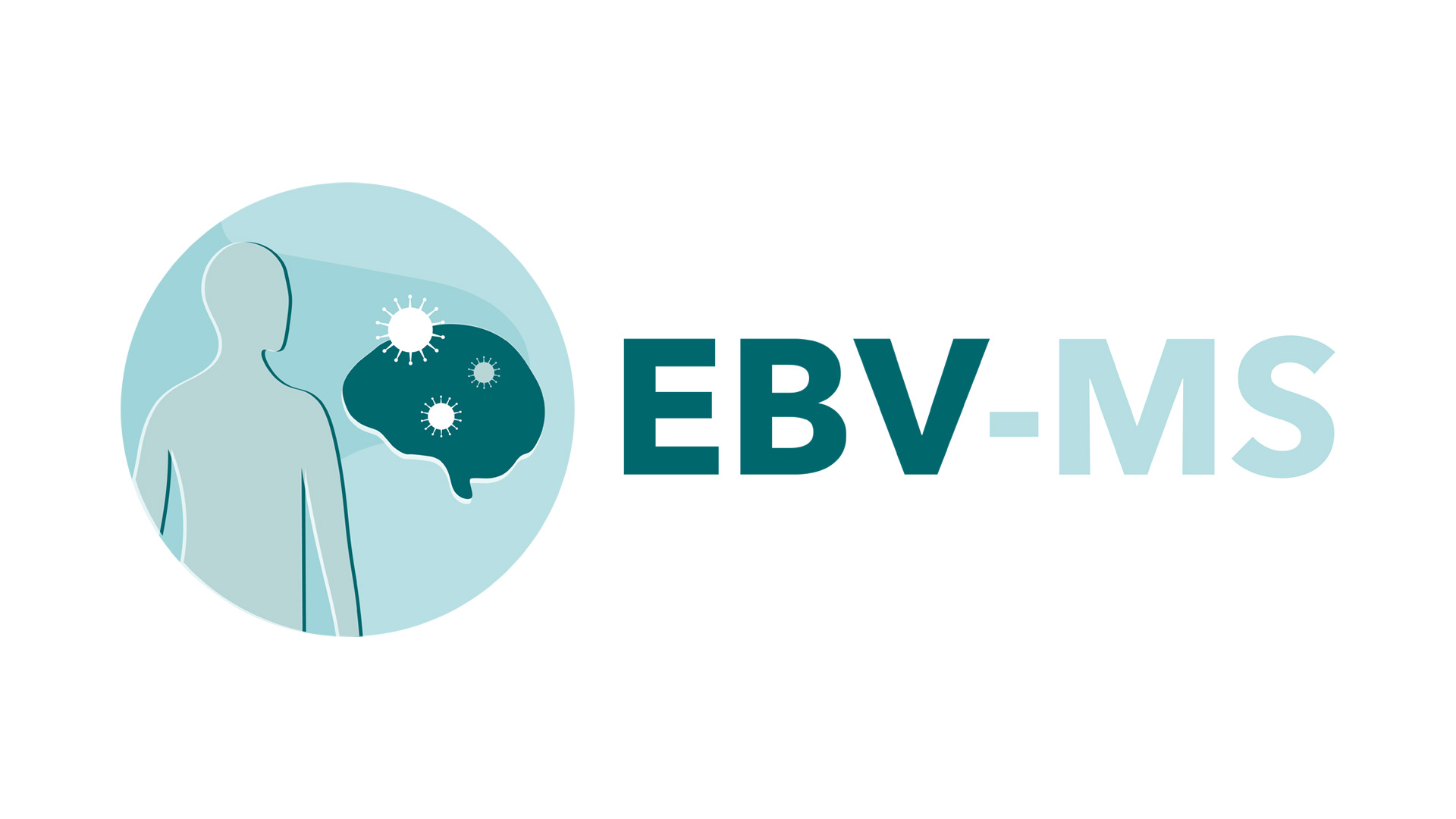
EBV-MS
Targeting Epstein-Barr virus Infection for Treatment and Prevention of Multiple Sclerosis
EMSP is joining a ground-breaking EU-funded research with leading universities and hospitals in Europe and USA, aiming to unveil the role of Epstein-Barr virus (EBV) in the onset and progression of the Multiple Sclerosis (MS) disease.
Background
The research published in Science in 2022 shows that Epstein-Barr virus (EBV) infection greatly increases the risk of developing MS and that it is near impossible to develop MS without first being infected by the virus. The EBV infection, also known for causing mononucleosis, is very common (more than 95%) in the population. Almost all people with MS have been infected first by EBV, while only 0,2-0,3 percent of the people who have had EBV infection end up developing MS. There is currently no available preventive treatment against EBV infection nor MS.
Purpose
The purpose of this EU funded research initiative to uncover role of EBV in multiple sclerosis, its onset and progression, especially in the light of recent research in EBV’s role in triggering the development of MS.
The aim of this research, led by University of Bergen, is to understand why only a few EBV infected people develop MS, and define the underlying mechanism of this process. The research will also aim to investigate if targeting the EBV infection with antiviral treatments can improve the disease course or stop disease progression.
What will this research include?
This research will include clinical trials of antiviral therapies targeting the EBV infection in MS, the analysis of blood and saliva samples, as well as registry-based research. This research will build on their extensive experience and previous research within their respective fields, and take advantage of high-quality health registries and existing research cohorts of persons with MS. If successful, the EBV-MS project will identify people at high risk of developing MS after infection with EBV and give the possibility of primary prevention of the disease in high-risk individuals. The project has the potential to provide mechanistic evidence for EBV being a prerequisite for MS development and progression, which could form the basis for developing strategies to eradicate the disease.
Objectives
- To determine if EBV is a treatment target for people with MS in two clinical trials with antivirals as add-on treatments.
- To investigate the importance of EBV genome variations on EBV infection and immune response and analyse interactions between EBV variants and MS risk genetics to identify which EBV variant is relevant in MS.
- To characterise the time interval between EBV infection and the clinical onset of MS and identify drugs that modify this interval and evaluate whether these drugs predict MS progression.
- To identify the immune cell signatures associated with EBV infection in cohorts of treated people with MS, and to validate these signatures in clinical trials so they can be used to identify people at higher risk of development/progression of MS
- To develop prevention treatment strategies to detect individuals at high risk of developing MS and people with MS with high risk through machine learning models.
Who is involved in this project?
The group of researchers and partners involved in the EBV-MS project include experts in multiple fields including: EBV and human genetics, virology, immunology, neurology, MS, clinical trial design, patient involvement, epidemiology, mathematical modelling, artificial intelligence, and data management. A governance method that takes into account patients, their needs and experiences, will ensure multi-stakeholder engagements and co-responsibility.
Professor Kjell-Morten Myhr from the University of Bergen and Professor Øivind Torkildsen from Haukeland University Hospital will be leading this project. The list of all consortium partners is included below. (link to that part of the page below)
How is EMSP involved?
To include the perspective of people with MS within the trials, EMSP will involve its MS Community Advisory Board to support in shaping the clinical trial protocol that aims to test if antiviral treat. EMSP will also be proactive in all the communication and dissemination efforts of EBV-MS targeting people with MS, their caregivers and MS patient organisations. Based on the findings of this project, EMSP will develop a policy brief and recommendations to prioritise the policy-related needs arising from this project and further influence decision makers to ensure considerations are clearly addressed. EMSP will also co-lead on a social campaign to raise awareness about the findings and their potential among all concerned stakeholders. This will include assessing the concerns and perspective of people with MS and healthcare professionals, leading on discussions session with patient organisations and patients, leading on online and offline seminars bringing together professionals, researchers and the patients and ensuring media outreach.

Consortium partners
• University of Bergen, Norway (coordinator), Haukeland University Hospital, Oslo University Hospital, as well as Stavanger, and Akershus University Hospitals and Vestre Viken Health Trust, Norway
• Karolinska Institute, Stockholm, Sweden
• Sapienza Università di Roma, IRCCS San Raffaele Roma SRL, and Fondazione Italiana Sclerosi Multipla Fism Onlus, Italy
• Harvard University, United States
• Universidad Pompeu Fabra, Fundacio Centre de Regulacio Genomica, and Hospital Del Mar Research Institute, Barcelona, Spain
• The European Multiple Sclerosis Platform AISBL, Belgium
Funding:

This project has received funding from the European Union’s Horizon Europe Research and Innovation Actions under grant no. 101136991 (EBV-MS).
Duration: The project starts December 2023 and will end by November 2028.
Want to know more?
- The Press Release can be found here.
- Read more on the project’s kick-off meeting here.
- Check the website and updates of the EBV-MS project: https://www.uib.no/en/ebvms
- Sign-up to the newsletter to stay updated here.
- Read more about the consultation between MS expert patients and EBV-MS researchers here.
- A brochure explaining the EBV-MS project here.
- EBV-MS consortium at ECTRIMS 2024 here.
 Your Account
Your Account
